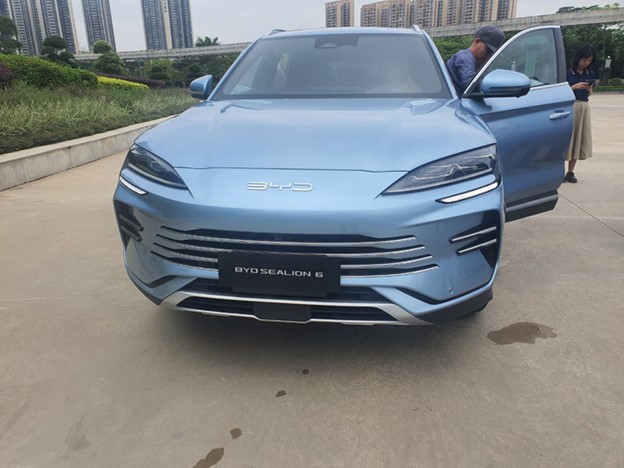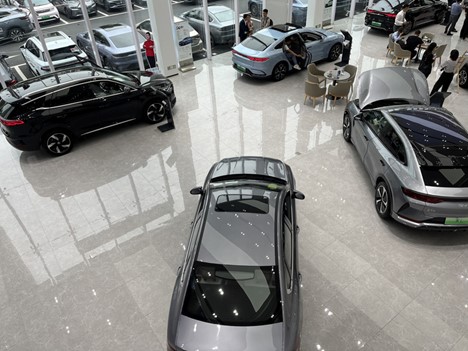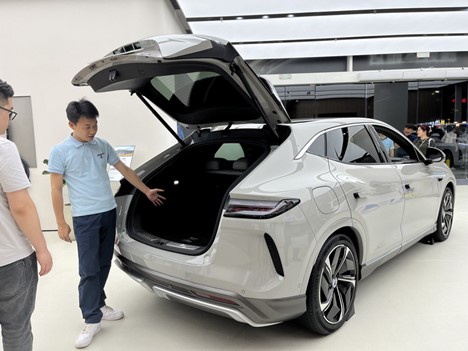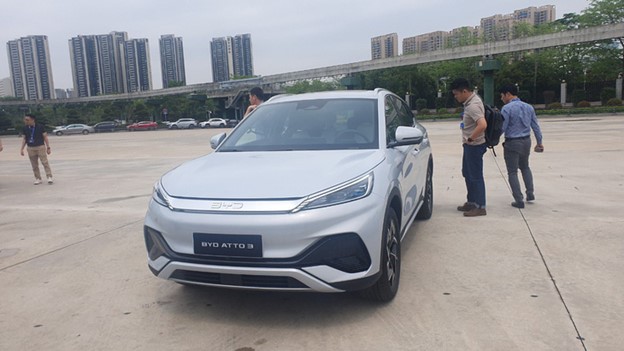China's BYD, the world’s largest electric vehicle (EV) manufacturer, will inaugurate 15 showrooms in Vietnam in June, COO of BYD Vietnam Vo Minh Luc told Tuoi Tre (Youth) newspaper.
The firm is working on the opening of other showrooms to have a total of 50 showrooms in the Southeast Asian country this year.
The showrooms will be situated in key locations across Vietnam, including Hanoi and Hai Phong City in the north, Da Nang City in the central region, and Ho Chi Minh City, Ba Ria – Vung Tau Province, and Can Tho City in the south.
After a decade of studying the Vietnamese market and collaborating with local authorities and partners, BYD has resolved to enter the market, marking its presence in the last Southeast Asian market where its products were not previously available.
Given Vietnam's significance as a market for BYD, the company acknowledges the necessity of dedicating time to thoroughly studying the market and preparing for its entry.
"Once this process is concluded, we will swiftly and robustly initiate business activities in Vietnam," stated Luc.

In the initial period, BYD will introduce its three pure EV models to the Vietnamese market, including the Atto 3, small hatchback Dolphin, and Seal.
The company expects the three models to see as impressive sales as they have in Thailand and Malaysia.
The BYD Vietnam executive added that by the last quarter of this year, the firm will introduce three more models, including the sedan BYD Han, the hybrid Seal Lion, and the SUV Tang, to the Vietnamese market.
The Atto 3 is considered BYD’s key product in many markets, including Thailand, with a price of VND625-730 million (US$24,714-28,858) each.
In Vietnam, the model will compete directly with gasoline-powered SUVs, such as Kia Seltos and Hyundai Creta.

Liu Xue Liang, general manager of BYD Asia-Pacific auto sales division, said BYD considers Vietnam an important and potential market, so Vietnam is the last market in Southeast Asia for it to enter.
The firm looks to develop its agents across 20 large cities and provinces, Liu added.
He expects BYD's EV sales to be a success in the Vietnamese market as EVs have become an irreversible trend.
BYD became the largest EV manufacturer in 2023 thanks to its batteries and workforce with up to 90,000 engineers and designers.
Except for tires and glass, BYD can study, design, and manufacture the remaining parts of vehicles, Liu informed.
He shared that Thai customers queue up to buy BYD vehicles. The firm currently accounts for 40 percent of the EV market share in Thailand and 44 percent in Malaysia.
“We expect the same success in Vietnam as the country already has an EV firm and local residents have expressed their interest in EVs which are cost-saving and eco-friendly,” the BYD representative said.

Regarding charging stations, Liu said BYD would not invest in its own charging stations in Vietnam but is working with partners to do the job.
He also affirmed BYD’s desire to construct a factory in Vietnam but refused to reveal the detailed plan.
Like us on Facebook or follow us on Twitter to get the latest news about Vietnam!




















































